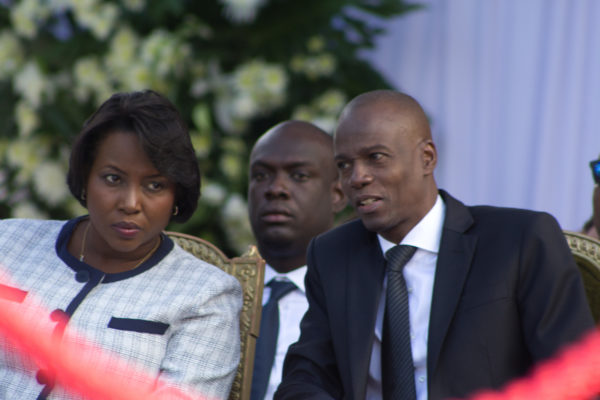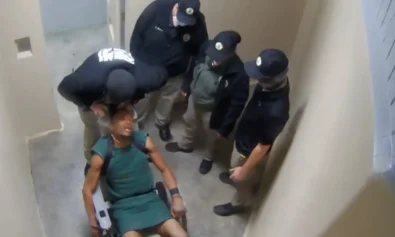Haitian President Jovenel Moïse was assassinated by gunmen at his home early on Wednesday morning. His wife was also wounded and is being treated in a hospital, although her condition is not known. Authorities closed the international airport, declaring a “state of siege” in the Caribbean nation that had been facing escalating gang violence and anti-government protests. A recent spike in violence in the capital city of Port-au-Prince has displaced more than 14,700 people.

Interim Prime Minister Claude Joseph confirmed the death of the 53-year-old president on a local radio station and said the attack had been carried out by an “armed commando group” that included foreigners that he said spoke Spanish and English during the attack. Joseph later appeared on television and declared a state of siege, calling for calm.
“Every measure is being taken to guarantee the continuity of the state to protect the nation,” Joseph said in the statement. National borders have been closed, martial law has been imposed temporarily, and national police are empowered to enforce the law.
In April, as the country faced an increase in killings and kidnappings amid a growing political crisis as the general election neared, Prime Minister Joseph Jouthe announced that he was resigning without explanation. Joseph was appointed as his replacement.
Moïse, a political outsider and former banana plantation executive, first came to power in 2017, albeit through a long election process marred by delays and accusations of fraud.
Normally Haiti’s president of the Supreme Court would be next in line to replace the president, but he recently died of COVID-19. Joseph could replace Moïse if he’s approved by Haiti’s parliament, which is essentially defunct without recent elections, since many members’ terms have expired.
Former President Michel Martelly, who was succeeded by Moïse, said he was praying for the first lady, and called the assassination “a hard blow for our country and for Haitian democracy, which is struggling to find its way.”
According to some reports, including video published on social media and the Miami Herald, Moïse’s killers claimed to be members of the US Drug Enforcement Administration (DEA) as they entered his home. Video circulating on social media shows a man speaking English with an American accent saying, “DEA operation. Everybody stand down. DEA operation. Everybody back up, stand down.” Other gunmen reportedly spoke Spanish.
A high-ranking Haitian official said the gunmen were mercenaries.
The United States, United Nations and Organization of American States supported Moïse’s claim to a fifth year in office, although those opposed to it say he should have stepped down on Feb. 7, 2021, citing a constitutional provision that starts the clock once a president is elected, instead of when he takes office. Moïse claimed his term shouldn’t end until 2022 because he wasn’t sworn in until February 2017 after his inauguration was delayed over allegations of voter fraud.
Less than 48 hours before he was killed, Moïse appointed respected neurosurgeon Ariel Henry on Monday to replace Joseph, but Henry had not been sworn in before Wednesday morning’s dramatic development.
“His sense of the State and his love of the country will undoubtedly guide him in his efforts to create a government of consensus that will address the issues of the day, in particular security and elections,” Joseph said about his replacement after Moïse’s announcement. It is now unclear when or if Henry will take office.
The assassination is likely to plunge Haiti into further instability and political uncertainty.
“We’re still gathering information,” White House Press Secretary Jen Psaki said on MSNBC. “We’re still assessing right now.”
“It’s a horrific crime,” Psaki added in an interview with CNN. “We stand ready and stand by them to provide any assistance that’s needed.”


